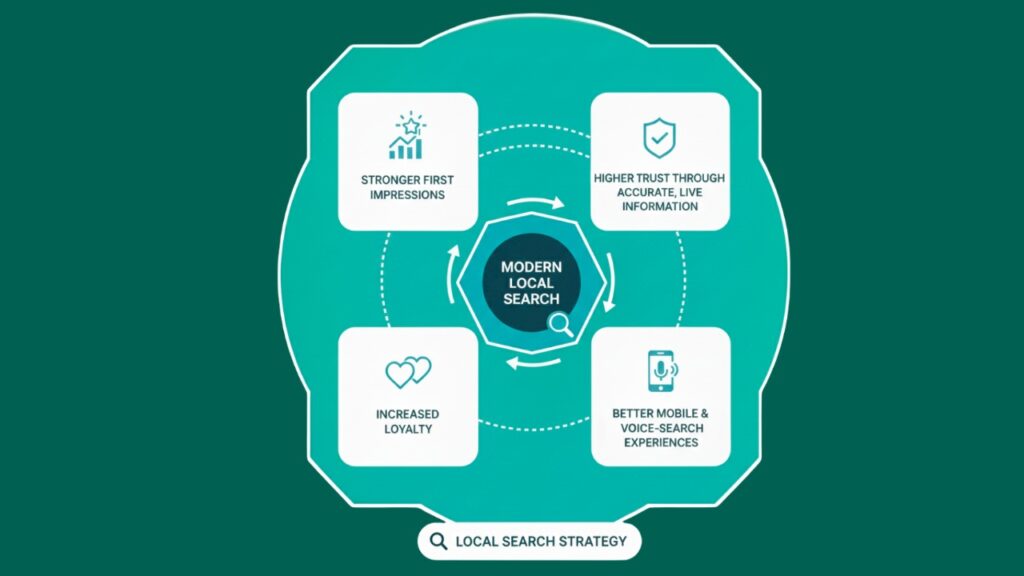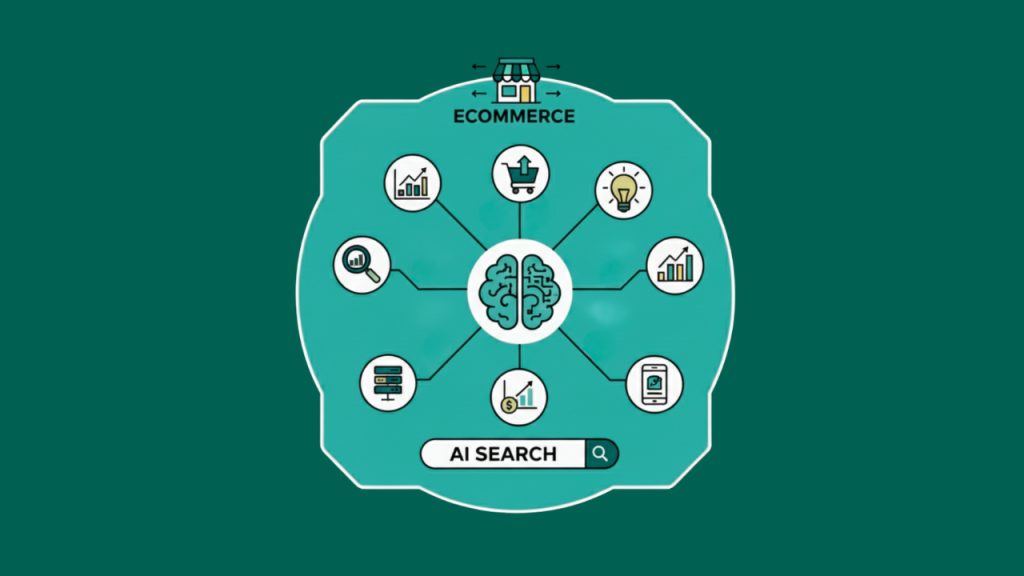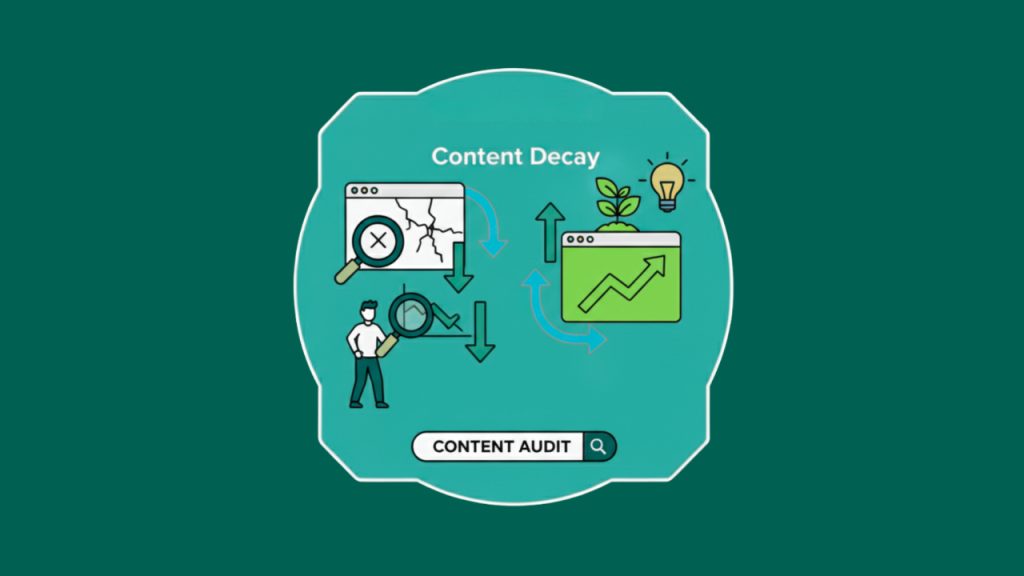Marketing has evolved in every way. Today, audiences need material that is timely, witty, and efficient. What’s the key to that speed? AI in content marketing. It is now a component of every marketing strategy, advertising concept, and social media post rather than only a sidekick. But with machines doing so much, everyone is wondering what’s left for humans. This combination of curiosity and concern is the year’s most talked-about topic.
It’s terrific to learn that AI enhances skills rather than replaces them. Businesses in the Midlands and beyond that combine machine intelligence with real creativity have the most effective marketing.
Table of Contents
How AI in Content Marketing Is Changing the Current Landscape?
AI now shapes almost every piece of marketing work. What began as minor editing or keyword help has turned into full strategy support. Brands no longer use AI just to correct grammar. They use it to forecast trends, shape tone, and track customer reactions in real-time.
Tools like ChatGPT, Jasper, Copy.ai, and Frase aren’t side tools—they’re team members. They collect performance data, order ideas by search potential, and accelerate campaign flow. Big or small, companies now rely on them to boost reach and trim waste.
The Rise of AI-driven Content Workflows
Marketing teams build their daily plans around automation. Content automation now controls calendars, topic clusters, and campaign rolls. An AI tool can design a week of social media content before lunch. It measures engagement and adjusts instantly. Humans used to spend hours shifting tone or checking trending keywords. AI now does the work in seconds, giving teams more time to experiment without delay.
Why AI is Speeding up Research, Ideation, and Delivery
Research that took days can be done before a coffee break. AI filters sources, builds outlines, and even predicts audience emotions. The cycle of research, writing, posting, and analysing moves in a flash. AI in content marketing has become essential to current marketing success because of its capacity to adapt and produce results more quickly. The goal is to free up writers to concentrate on strategy and new ideas, not to replace them with robots.
The Strengths and Limitations of AI in Content Creation
While machines impress with speed and precision, they don’t “feel.” That’s where humans step in. The line between automation and creativity defines modern marketing.
What AI Does Better Than Humans
AI beats humans in sorting data and refining tone. It adjusts the brand’s voice across platforms without tiring. AI can generate content rapidly, whether it is a 10-page manual or a tweet. Top-performing keywords, keeping a consistent voice, and structuring material are all areas where AI content production technologies shine. For global brands, that saves time and stabilises quality.
In one global campaign, AI helped produce ad variants across 20 countries within hours—a near impossible task manually. The reason? Machine accuracy and endless energy.
Where Human Content Marketers Still Lead The Game
Efficiency is not the same as soul. Machines can produce text, yet they cannot grasp irony, pain, or humour. AI-generated stories often lack the depth that humans provide. That’s why viral campaigns still come from insight-driven thinking. Successful marketing needs empathy and a sense of timing—both are human jobs. Even the best algorithm can’t replace stories built from real experience.
Human Creativity vs Machine Efficiency: Finding the Balance
The question often appears in debates: Is AI replacing writers? The answer is no. It’s making good writers stronger. But only if they learn how to work with it.
How Content Marketers Can Use AI Without Losing Creativity
You control the narrative. Let machines support you, not lead; AI fetches research, notes trends, and finds gaps, but trust your instincts to tell the story. Real people feel tone shifts; machines only mimic them.
Innovative teams now begin every campaign with AI ideas, but final drafts go through human minds. That mix is what turns dry data into bold storytelling.
Case Studies of Human-AI Collaboration in Marketing Teams
AI is used by one lifestyle business to create product descriptions. After that, authors mould them into narratives that reflect the tone of the brand. Teachers continue to write the posts for another education-related startup that employs AI for social media research. The outcome? Quick, relevant, and flawlessly consistent material. It’s man with machine, not man against machine.
Building the New Content Marketing Formula (AI + Human)
The strongest marketing systems are hybrids. They blend what AI does fast with what humans do sincerely. Together, they build a new formula for storytelling—fast, reliable, and spirited.
Step 1 – Use AI for Insights, Not Inspiration
Do not treat AI as a muse, but rather as a research helper. Discover audience interests, data trends, and keyword gaps using it. Still, humour, real emotion, and life experience are sources of inspiration.
Step 2 – Keep Human Editing and Storytelling At The Core
Machines can predict success rates, but humans see nuance. Editors must polish AI drafts, focus on tone, and protect brand voice. That’s how teams keep trust while still scaling content rapidly.
Step 3 – Measure, Refine, and Optimise Continuously
Once content goes live, AI content tools can track which lines earn attention. They measure dwell time, conversion, and clicks. Human strategists then tweak phrasing or storytelling goals. Continuous feedback keeps both AI and humans sharper with every release.
Ethical Considerations and Brand Authenticity in the AI Era
With AI everywhere, questions about honesty and originality are growing. Can brands stay genuine when part of their content comes from machines? The answer depends on transparency and intent.
The Importance of Disclosure and Transparency
Telling your audience about AI use helps strengthen trust and credibility. Many top brands now include small disclaimers or edit notes. People don’t mind AI involvement if the message feels genuine.
How to Maintain Trust While Using AI Tools
Human review is essential, so always fact-check, rephrase, and rewrite when necessary. AI can make errors or sound generic. A thoughtful edit keeps your content safe, accurate, and believable. Remember that Google welcomes AI-written material only when it’s useful and valuable to readers.
Preparing For The Future: Skills Content Marketers Need in The AI Age
Jobs are changing fast. In the new era, great marketers know technology, but lead with creativity.
Adapting Roles: From Content Writer To Content Strategist
The old job of “copywriter” is now half strategist, half data thinker. Marketers must learn to guide AI vs content marketers debates by showing balance. They use machine output but shape it with meaning. The future of work will reward those who can fuse ideas and analytics effortlessly.
Why Emotional Intelligence Will Always Outperform Algorithms
No matter how sharp an algorithm becomes, empathy wins. Machines may mirror human language, but they don’t feel boredom, joy, or pride when readers sense heart in a story; retention multiplies. That’s why emotional intelligence isn’t optional—it’s the secret edge of content success in this AI age.
Bonus Tip
Jobs are changing fast. In the new era, great marketers know technology, but lead with creativity.
Adapting Roles: From Content Writer To Content Strategist
The old job of “copywriter” is now half strategist, half data thinker. Marketers must learn to guide AI vs content marketers debates by showing balance. They use machine output but shape it with meaning. The future of work will reward those who can fuse ideas and analytics effortlessly.
Why Emotional Intelligence Will Always Outperform Algorithms
No matter how sharp an algorithm becomes, empathy wins. Machines may mirror human language, but they don’t feel boredom, joy, or pride when readers sense heart in a story; retention multiplies. That’s why emotional intelligence isn’t optional—it’s the secret edge of content success in this AI age.
Conclusion
AI in content marketing signals evolution, not extinction. The smartest path forward is unity—AI with humans, not against them. However, machines bring pattern and precision; people bring story and spark. Those who can combine reason and creativity will rule the future. The next phase of marketing, where authenticity remains human even in a digital environment, will be defined by brands that combine the intellect of AI with the heart of humans.
Reach out to us to boost your content strategy today.
Frequently Asked Questions
- How do you see AI in content marketing currently?
It performs the research, planning, and repetitive tasks so marketers can spend more time being creative and building a content strategy.
- Can an AI really replace a professional marketer?
Investigation, planning, and evaluation of feedback and results are things AI will never do well. Human aspects like emotion and cultural awareness are also absent from AI.
- In 2025, which AI content tools will be the leaders?
ChatGPT, Jasper, Copy.ai and Surfer SEO will distinguish themselves as the AI content creation and analysis leaders.
- Why should a brand be ethical when using AI?
Everyone must fact-check, cite their source, and ensure AI use is substantive and not filler.












